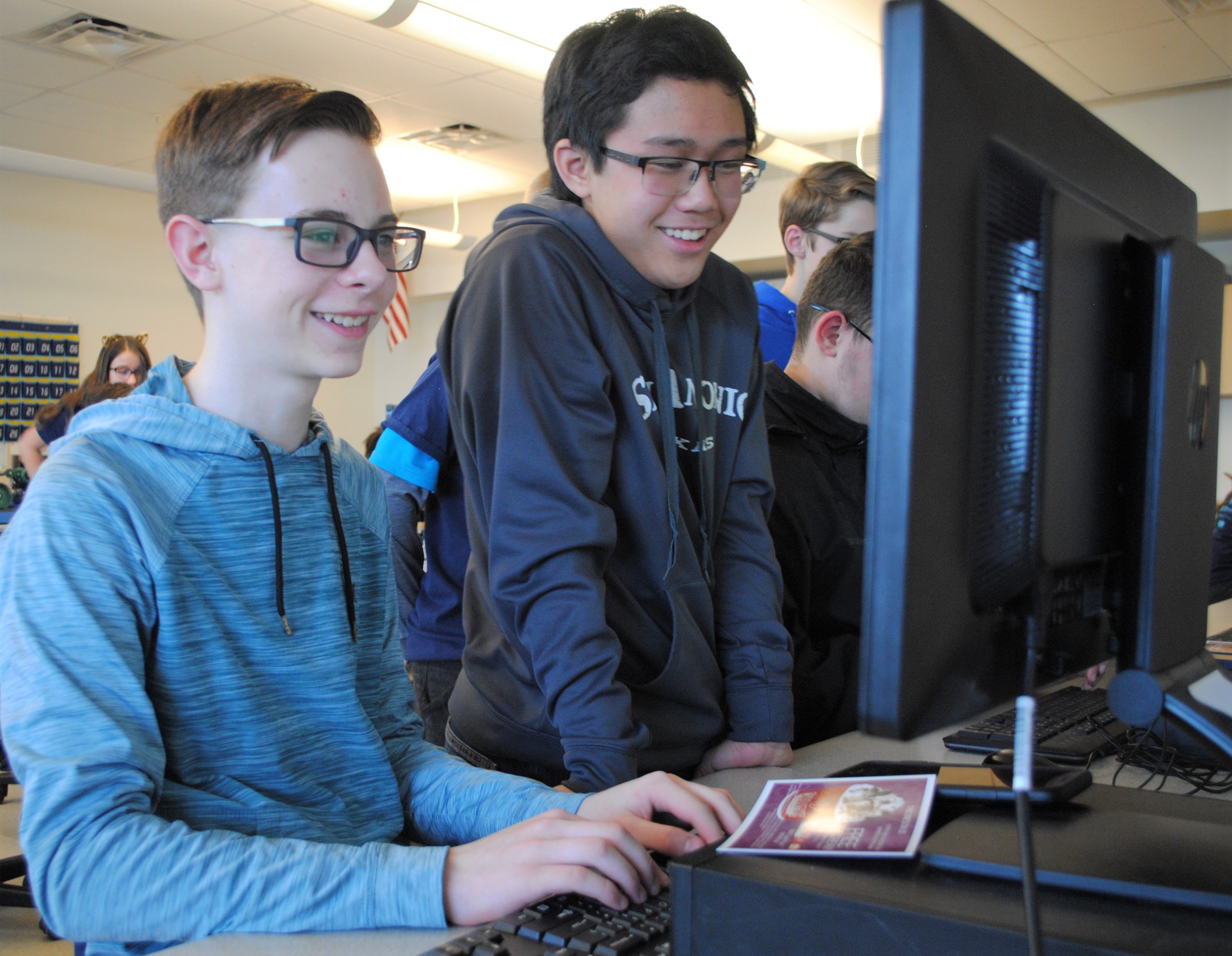
Most Wednesdays, a group of middle schoolers scramble over to Oxford High School after classes let out to sit down for one more class. Oxford Middle School’s Cybersecurity Club uses that extra hour to learn more about computer safety and problem solving in preparation for competitions.
All of those hours have paid off. One of the club’s two teams, the Iron Crabs, were crowed the state champs in cybersecurity and went to the national semi-finals, where they finished out the year. But that’s not even the most exciting part for them.
They became the state champs as a first-year program.
“When I first started this, I honestly didn’t think we were going to make it past the second competition,” said Natalie Daversa, an OMS teacher and the club’s advisor. “Not because I didn’t believe in my students, just because of the enormity of it and competing with people all over the country.”
The club got together in the fall and started winning competitions through CyberPatriot just weeks later. While the Iron Crabs finished as Michigan’s best, OMS’ other team, the Walruses, also finished well as the No. 3 team in the state.
“(CyberPatriot) suggests waiting a year, and we didn’t do that,” Daversa said. “We started within two months of getting together. Our first meeting was in October and our first competition was in November.”
The Iron Crabs’ and Walruses’ success has been surprising for the students, too, since they just picked their teams based on friendships and shared interests instead of skill level.
“We’re all friends, so we tried to get together,” OMS eighth-grader Michael Duong said of his team, the Iron Crabs.
These aren’t face-to-face competitions. The students gather in an OHS computer lab for competitions and have six hours to secure three “images” among a few other tasks. Daversa described the images as “practice operating systems” and Jack Bracci, a sixth-grader on the Iron Crabs, said they’re like “a computer on a computer.”
The students secure those images by looking through the settings and seeing what can be made stronger. At the end of six hours, CyberPatroit tallies the scores and choses winners.
“If a hacker were to try and hack into a computer, (the kids) are looking at things to say, ‘What can we do to help us be more secure so a hacker will not take our information?’” Daversa said. “So they’ll go into the account settings, user settings, and look.”
Daversa and Randy Goebel, a volunteer mentor, know the kids will take forward skills they can use their whole lives from their time in the club.
“This will help them in everyday life because they use a digital device – a phone, computer – and instead of having to pay somebody to fix their computer, they can do it themselves,” Daversa said.
Goebel noted the smarts of their students. One of the programs the students use during CyberPatriot competitions, Cisco’s Packet Tracer, is something he called, “very difficult” and “college-level stuff” that is being tackled by kids who are still a few years off from driving a car.
For the students, it’s mostly exciting to just be with a group of people who have similar interests. Winning is just an added bonus.
“A lot of times I can’t really talk to anybody about this kind of stuff that’s in this club,” Bracci said. “These are people that know what I’m saying and that I can talk to about all of this stuff with computer science.”
“I just like being with my friends and learning about computers,” Duong added.
The six-hour competitions are a little grueling, but the kids still have a good time.
“A competition is, a lot of the time, really stressful,” Bracci said. “But it’s mostly really fun.”
The reigning state champs found their first year to be an exciting and surprising one, and they’re looking forward to getting back at it and getting even better as time goes on.
“It feels really good that we have the knowledge to do this in our very first year,” Bracci said. “We have no past experience, no prior training to go into this, and then we go to the semi-finals… Our team is just awesome.”

Leave a Reply